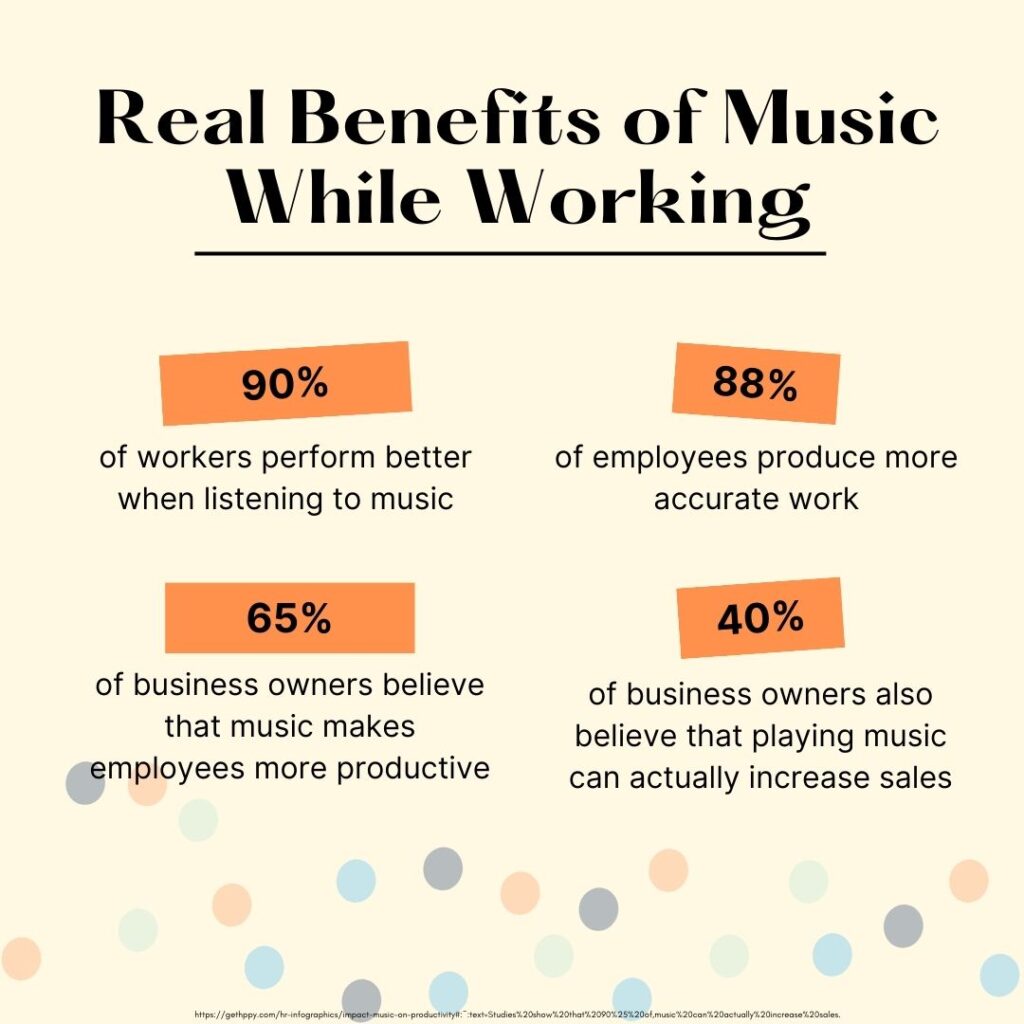Music has a very unique way of influencing and emphasizing our emotions. Whether happy, sad, angry, or stressed out – there is a genre of music for whatever we are feeling. While silence may be ideal for some workers, music is becoming a primal way to keep workers engaged and on task. Genres like classical music and Lo-Fi beats are easy ways to reduce pulse rates and blood pressure, all while decreasing levels of stress hormones in the body.
Streaming services like Spotify and Pandora now create playlists and radios tailored for office settings, designed for productivity. A survey directed by TotalJobs included over 4,500 participants and found that most people think listening to music increases productivity.
Why is this?
The main reason is probably that music can act as a mental stimulant which makes your brain focus on the music and the task at hand, rather than all the other surroundings and noises. This is different for everyone depending on certain factors. Extroverted people are more likely to thrive on the stimulation of music when they’re focusing on a task, while an introvert may just prefer silence or white noise in the background.

Assisting in Memory Aid and Motivation

The soothing effects that music can have on the human body allow workers to feel less stress in times of tension. Oftentimes, if a person is stressed their memory-making abilities are not at their best, so it’s easier to forget small details. If more people add listening to music to their work routine, more workers could have a way to decompress and thus, would be less stressed. By reducing stress, you improve memory skills and overall brain function, leading to better and more productive work.
Music also motivates and excites us. Music can help reduce fatigue in humans and simultaneously offers stimulation and excitement at the same time. Beats and rhythms can give people a flow to work with and can act as a constant motivator. Just like slow Lo-Fi beats can soothe heart rate and destress a worker, upbeat and fast-paced songs can trigger alertness and cause movement within the body. Both have their benefits, it just depends on the person and what they need from their music that day.
Tips For Listening to Music at Work
- Take your headphones off every now and then to give your ears a break and let others know that you’re available
- Make sure you’re not jamming so loud you can’t hear the phone ring or someone in the office calling your name
- Avoid inappropriate songs, just in case others can hear
- Save the dancing and humming for working from home
- Create as many playlists as you can think of for all of your work moods

